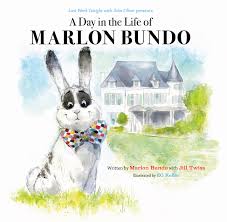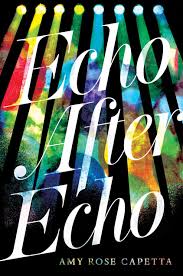Last week the American Library Association put out their annual list of the top ten most challenged books of the previous year (for 2018, it’s actually a top eleven). It’s notable — and not unusual — that more than half of them were challenged because of QUILTBAG content.
The ALA compiles statistics throughout the year whenever a parent or patron questions the appropriateness of a book in a school or public library’s collection and tries to have it removed. If you take a look at the most recent list you can see the rationale given for challenging each book; six of the eleven titles list LGBTQ characters or themes as a reason. The accompanying infographic includes a word cloud that also clearly shows LGBTQIA+ as the biggest concern during challenges, with additional entries for terms like “gender nonconformity,” “transgender characters,” and “same-sex married couple.”

Drama, a graphic novel for tweens by Raina Telgemeier, has shown up on this list for several years now, and comes in this year at #5. Callie, the main character, helps with set design in her middle school’s drama club, and the story focuses on, well, the DRAMA of middle school, including failures, embarrassments, and first crushes. One such romance is between two boys. This tame comic book is perfectly fine for (and very popular with) upper elementary students — but many of its detractors cite the gay content as inappropriate, while finding no issue with the many straight kisses and crushes that arise throughout the story.

A Day in the Life of Marlon Bundo by Jill Twiss and illustrated by E.G. Keller, #2 on this year’s list, got its start as a satirical jab at the Vice President. Mike Pence’s wife and daughter wrote a book about their pet bunny Marlon Bundo. As a response, comedian John Oliver presented this picture book in which Bundo falls in love with another boy bunny, while a villainous stinkbug (who looks suspiciously like the President) tries to thwart their relationship. A Day in the Life of Marlon Bundo is a surprisingly sweet picture book that stands on its own, apart from the political and social satire that spawned it. While some of the complaints about this book arose from its political viewpoint, it received more heat from the same-sex romance between Marlon and his bunny boyfriend.
Why are parents and community members so concerned about QUILTBAG characters and themes in books for children? Why do some citizens attempt to have books removed from libraries and schools, even going so far as to hide or destroy copies of the offending books?
I can’t answer those questions. As a school librarian, I encourage my students to self-select what they want to read, which includes what they don’t want to read. I remind them that their parents can guide what kinds of books they choose, and some families might opt to place certain books off limits. But I emphasize that students and parents don’t get to make those choices for other students and families. I tell my students: If something makes you uncomfortable, simply don’t check it out. Choose the books you like, and leave other books for other readers.
(Several years ago, a mother of one of our students informed me that our library had more “gay books” than other junior highs in our area. I’m pretty sure it wasn’t meant as a compliment. At the time we had about 30 such titles amid a fiction collection of over 5,000 books. I’m glad that we have more than that now.)

Sometimes things make us uncomfortable simply because they’re unfamiliar. Perhaps the key then is to read more QUILTBAG books, not banish them from our children’s experience. Science has shown that reading fiction increases emotional intelligence and empathy. Author Sunil Yapa has said, “Empathy is a profound act of imagination and human connection. In fiction, we imagine ourselves into other people’s experiences.” Kids and teens will be more accepting and inclusive if they have read diverse stories about others’ lives.

While some people seek to remove QUILTBAG titles from children’s shelves, lots of people think we don’t have enough QUILTBAG books for youth in libraries — especially stories about people of color, kids with disabilities or mental illness, or youth from other marginalized groups, who also happen to be queer. NBC News recently published a story about the rise of YA books with LGBTQ content. The article features many YA authors, including Amy Rose Capetta and Caleb Roehrig, whose Rainbow List-ed books Echo After Echo and White Rabbit I touted back in QUILTBAG #2 – The Rainbow List. The NBC article also mentions many other worthwhile authors and YA titles.
I’m tired of seeing so many QUILTBAG books on the banned, burned, and challenged lists. We need to move beyond the idea that QUILTBAG books are somehow bad for our kids. In fact, a recent study showed that having a gay friend makes you a better person. So strive to be better, and help the children and teens in your life be better too. Read more QUILTBAG books!
